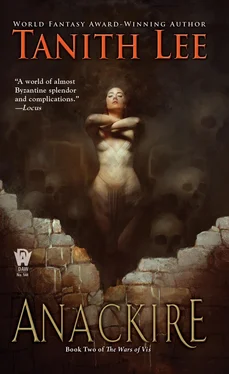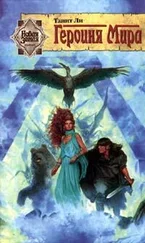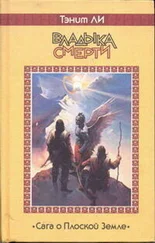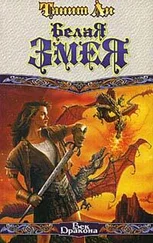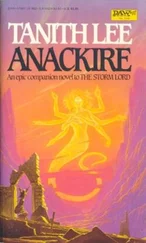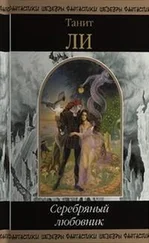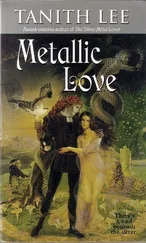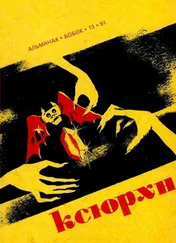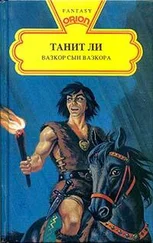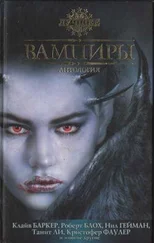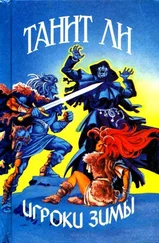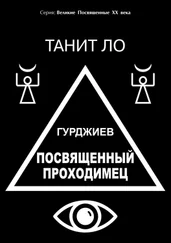He did not know what it was, and gradually, forcefully, he thrust it from him. And away. And away.
When he went back, the girl was folded on the floor.
“Come here,” he said. “You were right. It was only a dream.”
She crawled back to him and caressed him until he wanted her and took her. He fell asleep again, and as he slept, Berinda curled against his spine, smiling like a forgiven child.
Against a blue dusk no longer tinged by Zastis, the magician’s hands flickered and a rain of light fell from them. In the shallow bowl beneath, the bones of a recently dead animal, clean and white, glimmered. There was a prolonged hiatus. Beyond the window, stars hung in streams above the bay. A star smoked also on the highest palace roof, a morbid beacon to all Istris: the funeral watch-fire of a King’s dead, custom of Shansar, burning now for more than a month.
“Well?” Suthamun eventually rasped.
“What do you see?” Suthamun’s magician raised his head, and the mysterious light among the bones went out.
“You were wise, King, to call him back from Xai.”
“Was I? That was the advice of my council. Black men and yellow. He’s made himself popular, a little hero. My Vis didn’t care for his exile. This tale I tried to kill him—twice—at Tjis, now here in the capital, my assassins falling on my own heir in error— By Ashara! It was the rabble here did that—black and brown scum—drunken—killing my boy, knowing him even in those damnable filched clothes. Or else Free Zakoris. Infiltrators revenging themselves on Kesarh—mistaken—” Suthamun broke off. His grief was real but oblique. His eyes were dry, yet he had wept in rage when they brought him the corpse. Jornil had been, if nothing else, a symbol of the continuance of Shansarian rule in Karmiss, that dynasty of reavers. Now Suthamun’s oldest legal heir was seven years old. The rest were mixed-blood bastards, or daughters. Useless.
“King,” said Suthamun’s magician, “even the High Lord must sometimes listen to the desire of his people. You could have done no other thing than return the Prince Am Xai to your court.”
“And now I must pet him, make love to him, to please them, keep them quiet. When he was the cause of my son’s death. And I never raised my hand against the dog. Never . The story about Tjis—it’s a lie.”
“You believe Prince Kesarh might also be implicated in the Heir’s murder?”
“I don’t know. Free Zakorians, the mob, Kesarh—yes, why not? In Shansar I’d have put him to the test, the Three Ordeals, fire, water, steel. But I daren’t, not here in this liars’ land.”
“You do well to humor him, King. The constellations that companion his birth are arresting. And the goddess has spoken here, a low soft voice, indecipherable, but evident.”
Suthamun, impatient and afraid, reined his pacing.
“What do you mean?”
“The Aura of the goddess has passed across the fate of the Prince Kesarh. It would, King, be pointless now to oppose him.”
Suthamun grunted. He longed for wine and noise; the ten-night-long Shansarian death-feast, loud lament and toasts to the shades, that had eased him. But they were done. And tonight Kesarh would also sit at the table. He had been welcomed back discreetly, at noon today, having passed through the city incognito as a thief. As one of his own assassins, perhaps?
There had been nothing to link Kesarh with the death of Jornil—save the clothes in which Jornil had died. But despite the Aura of the goddess, diplomacy, magic, what-have-you, one would be slow not to, yet he saw the event from an oddly angled perspective, from the dramatic epic view of what he had been, a tribal lord in a land of omens and sagas. For Kesarh to think Suthamun strove to murder him, and so to have Suthamun’s son dispatched while playing Kesarh—Suthamun to carry the blame—these were Shansarian vengeance-moves of the highest order. The King, if he credited them as such, gave them also that much respect.
He did not prophesy from them a particular threat to himself. It would have been absurd to do so. Kesarh was nothing, save transiently to the Vis rabble. And even with the foremost heir missing, Suthamun and his five brothers yet stood between all men and the Karmian throne.
The fire on the palace roof was doused. It smoldered out as Zastis had done, conflagrations of love, life, death, showing no great difference from each other.
The summer too began to flame and die. The flames of leaves rotted on the trees. The reeds beside the pools turned sallow, then black, and the sunsets thickened.
Rem, having found himself intimately involved with his master’s schemes at Tjis and Ankabek, thereafter waited, at a loose end. That afternoon before he left for Xai, Kesarh had spoken to Rem. It was the first time Rem had been inside the modest royal apartment, as opposed to on guard outside it. His former trade was apparently to be put to some use. Talents Rem had been glad not to use for more than a year were again called on. With the correct blend of implicit coercion and silken payment, he had seen to it the required persons were suborned to Kesarh’s will. As a result, Jornil was now ashes, and Kesarh back at Istris, installed in new, more lavish rooms, a party to most of the King’s social calendar.
The situation astounded Rem. To live off a man’s enforced bounty, the cold blade of his hate, though sheathed, always waiting at your back—Kesarh seemed quite unmoved. Only the intense stillness of his eyes sometimes belied it. He was aware, he was vigilant. His brain worked on, even as he drank Suthamun’s wine, or as the girls ran to kiss him on the streets. Before too long, appeased by Suthamun’s ironic punishment and the victim’s glory, Visian Istris would forget Kesarh’s wit and bravura. It was only a matter of time. And then, if only then, some accident might be arranged. Kesarh would know all this. Know it more competently than did the King.
But Rem himself was weighed down, uneasy. He considered again and again quitting the Prince’s service. It would mean a fat fee gone. While, knowing what he now did, Rem might find his own life in danger. In flight without wages was a state that did not appeal. There was, too, some abstraction that kept him loyal. To carry out such tasks for a man bound you to him, more than fear or prudence.
Another thing troubled him besides.
What had happened at Ankabek, the sudden second subjection of his reason to those mind-pictures, too close upon the first—so he had awaited other such subjections in constant nervousness for days and nights after. Even now. And the night of the temple, the statue of the serpent woman, so irrationally familiar.
Weeping storms visited the city. The nights grew cool, then chill. Kesarh had awarded presents to the council, and the Warden, but he must conjure some other insurance before the cold months came, for already the mood of the city was changing. Part of the roof of the Ashara Temple had been found to be unseated. During this stormy weather tiles had crashed in the street. Shansar and Vis alike were dismayed at the augury, which could be adapted to almost anything bad.
Kesarh went modestly but openly in his black, with only two guards, to offer to Ashara for the joy of Jornil’s soul. Istris, suitably alerted to the happening, watched in somber approval.
A doleful letter from Lyki somehow found Rem at the lodgings he was then frequenting. The rope merchant was sick and crotchety. Lyki herself was unwell. It seemed she needed a physician and her protector, miserly after his losses, would not send for one. The thinly disguised cry for alms was adorned by veiled references to her own former generosity to an unloving son. Hating her, but unable to do otherwise, Rem sent her money.
Читать дальше
